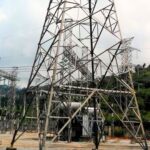… says “infrastructure key to achieving 10kg per capita gas consumption target in Nigeria”
… urges private sector to lead Diesel-to-Gas facility conversion efforts
Engr. Emeka Iheme, Managing Director, Gasavant Africa, a Gas Infrastructure Development firm who doubles as the Financial Secretary of the Nigeria Gas Association (NGA) discussed the power-to-gas market in Nigeria and provided solutions to the current industry crisis in an interview with Oredola Adeola, Senior Partner at Advisors Reports. He also highlighted the importance of mentorship, internships, and youth engagement in driving investment in the gas sector. Emeka offered insights to President Bola Tinubu’s administration on navigating present challenges in the gas market, stressing the significance of education and public awareness in unlocking Nigeria’s gas potential. Excerpts.
What is the future of the Nigerian power sector?
The way the Nigerian power sector was designed has shown that the Government does not have a solution to address the electricity industry crisis now or later. The power infrastructure was structured either or planned to fail. Nigeria’s power generation production capacity is between 7000MW and 8000MW, while the transmission capacity is below 4000MW, and the demand is over 40,000MW, highlighting the grid system’s failure.
The private sector must take the lead, and the only way to achieve this is by decentralizing and breaking down the entire Nigerian power grid into smaller components. The Federal Government passed the Nigeria Electricity Act and a constitutional amendment to open up the market for sub-nationals and private sector players.
State Governments should go further by allowing local governments to participate in the electricity market. Empowering Local Government authorities to provide power is crucial. Additionally, the government should provide a gas sovereign guarantee to state governments, encouraging private sector players to invest under the new Electricity Act, making the sector more attractive for investments.
The Nigerian power sector’s liquidity issues have deterred international investors. Redirecting 20 percent of the subsidy funds towards a focused incentive program for gas development could have a more significant and positive impact than subsidies, which only offer temporary relief for long-term pain.
It is time to shift the perspective on power from a national utility controlled by the government to a decentralized approach. Instead of top-down power development, starting from the grassroots level is essential for sustainable progress.
What creative means are available to boost the country’s gas investment, and how can innovative solutions for gas utilization propel Nigeria towards a gas revolution and address critical electricity deficits nationwide?
There are a lot of creative ideas that the government should consider to optimise the country’s gas potentials, because doing things in the conventional ways is not going to work. The new generation of investors in the gas and power sector are considering the GSM model, inspiring a surge in investment.
We observed the evolution from a high-priced commodity for a select few to a widely accessible resource as technology advances and costs decrease. This trend mirrors the development of gas sectors globally, indicating a similar transformation in the Nigerian gas industry in the coming years.
To drive progress in the energy industry, creative solutions like mandating oil and gas companies to fulfill their commitments of providing power to host communities are essential.
By imposing minimum power generation requirements on these companies, a substantial contribution can be made towards alleviating the electricity deficit nationwide, particularly benefiting underserved areas.
Additionally, offering tax incentives for investments in the oil and gas sector, specifically for gas utilization and production, aligns with national interests and can propel Nigeria towards a gas revolution, following successful models from other countries.
What other monetary and fiscal models can spur investment in the gas sector?
The Government should introduce programmes that permit Nigerian Banks to provide generator financing for people to switch to gas usage. The main barrier to gas utilization in Nigeria is mental inertia and the reluctance to deviate from established norms. It is crucial for Nigerians to recognize that sticking to conventional practices is costly and will only become more expensive over time unless we embrace unconventional approaches to meet our energy requirements.
The Government should offer indirect incentives and tax benefits to encourage investment. Additionally, charging licenses and fines in US dollars should be discontinued by the Nigerian Government. This practice is impractical and should be permanently abolished. Adopting a deliberate strategy to reduce reliance on the US dollar in spending is essential.
By incentivizing local manufacturing to promote gas utilization and increase the exportation of domestically produced goods, Nigeria can boost gas consumption and reduce capital flight associated with importing goods and services.
What are the factors inhibiting business growth of the gas sector from upstream to the last mile?
The biggest problem in Nigeria is that the largest LPG producers have export commitments and struggle to meet domestic needs. This scarcity necessitates the continued reliance on imports, which has exposed the LPG market to fluctuating FX rates. Hence, we to focus on the establishment of more gas processing plants and infrastructure to address the deficit.
What are the factors and conditions contributing to the increasing price of LPG?
Please note that the rising price of LPG is primarily driven by the scarcity of the dollar and the reluctance of Nigerian banks to provide adequate FX support.
Another significant issue is the illogical use of diesel in gas transportation, contradicting efforts to promote the gas industry and the Decade of Gas initiatives. To address this, we are focusing on gas conversion and mandating that all future truck procurements be gas-powered.
By transitioning our vehicle fleets to Autogas CNG and LPG-driven models in collaboration with OEMs, we aim to alleviate cost pressures and reduce the impact of transport pricing on LPG costs for households.
Additionally, LPG prices are influenced by heating needs and seasonal dynamics, particularly during the winter when countries require more heat for warmth. In Nigeria, prices tend to spike during festive seasons when increased cooking demands lead to higher consumption.
Government should cease practices that exacerbate issues in the gas and power sector.
The dollarization of levies, licenses, and duties is unnecessary and should be halted. Charging in US dollars only adds complexity and challenges to the sector, hindering its growth and stability.
Beyond incentives, what role can government play to drive impactful investments and transformation in the gas sector?
Investors in the gas sectors in Nigeria are very clear about where to put their funds, meanwhile what is very critical apart from the incentives to invest is the willingness of the government to partner with those gas investors that are willing and committed to investing in the domestic market.
Especially those that are willing to make a difference in the gas sector. This form of incentive and government partnership is needed in the same vein, since it was through government support that the private sector came into the GSM sector which is now booming.
What are the considerations and processes involved in the conversion from a Diesel power facility to Gas?
Alot of upstream assets have widespread facilities for housing staff and operating sites running on diesel 24/7 is a rising OPEx cost that can be avoided. We are in the medium term looking to convert some of these assets and infrastructure into CNG and gas.
My company is not doing the import of the conversion equipment and technology; we will be collaborating with Global Experts in the conversion space. We will locally source for the material and personnel as much as we can. For special items that we need, we will buy them and assemble them in Nigeria. But the goal is to have as much local content as possible when building the conversion stations for gas generators, CNG buses, and trucks.
How do you respond to the challenges posed by the lack of availability and sources of gas molecules?
Our comparative advantage lies in aligning with the Nigerian gas infrastructure masterplan. All we require is a designated location with road accessibility. We possess the expertise to locate the nearest gas sources to any given site.
Securing molecules is not a challenge. While there may be hurdles, Gasavant has identified potential sources for the commodity and established connections to facilitate gas procurement. For instance, in Abia state, Shell Nigeria Company has made substantial investments in gas pipelines, notably in Aba to supply gas to the Ariara market.
By leveraging Shell’s gas infrastructure map and collaborating with NGIC, we can determine access points to the gas pipelines. Additionally, with a well-established road network, Gasavant can transport gas to various locations. Furthermore, the government’s initiatives to utilize the railway for transporting LPG and propane to the northern regions enhance our logistical capabilities.
Given the substantial size of Nigeria’s gas market and the economic impact of issues like gas flaring, is there a method to quantify the magnitude of revenue losses in the country?
According to data from the Nigeria LPG Report 2023, Nigeria consumed about 1.265 million metric tonnes of cookung gas. The Gas Master Plan and Decade of Gas target aim for Nigeria to increase its annual LPG consumption to around 5 million metric tonnes. This translates to approximately 5 kg per capita, which is lower than the average consumption in neighboring West African countries.
The goal is to reach 10 kg per capita to align with regional standards, as neighboring countries are net importers of gas.
To achieve this target, enhancing gas utilization relies heavily on infrastructure development to ensure widespread access to the commodity. As an infrastructure development company, our focus is on facilitating the transportation of gas to even the most remote areas of Nigeria, emphasizing the critical need for well-established infrastructure. This requires adequate funding, advanced technology for connectivity, and educational initiatives to inform and engage the population.
So, what role can public sensitization and engagement play to spur investment in the gas market?
While the government may face constraints in providing all necessary infrastructure, it can play a pivotal role in disseminating essential information and raising awareness about the significance of gas for individual goals and national development.
By creatively addressing these challenges, the government can contribute significantly to promoting gas utilization across the country.
We need to educate people also and that is another small subtle thing that the government needs to do.
Government intervention is crucial in promoting awareness and education among the populace regarding the significance of gas. By sponsoring educational initiatives, individuals can become informed about the importance of gas.
In Nigeria, there exist numerous undocumented industries, both formal and informal, and raising awareness about gas can have a substantial positive impact on their profitability, potentially transforming their financial outcomes.
While it is essential to engage with individuals knowledgeable about the gas sector, it is equally important to educate clients on the benefits of gas utilization. This holistic approach to education and awareness is key to fostering a deeper understanding of the advantages of gas across various sectors and industries.
Could the factors currently driving the increase in LPG prices potentially impact the future price of CNG?
The price hike in the gas sector can be attributed to two main factors: inadequate infrastructure to meet the growing demand and the potential for prices to double due to limited infrastructure expansion capabilities.
As industries expand, costs tend to rise due to the scarcity of options available to meet the increasing demand. However, over time, as infrastructure develops, prices are expected to stabilize and eventually decrease.
Regarding Compressed Natural Gas (CNG), the government’s efforts in raising awareness about its importance, particularly through CNG bus schemes, have been commendable. Presently, all states are exploring the establishment of CNG stations to fuel buses and potentially produce compressed natural gas locally.
Importantly, CNG cannot be imported without exposure to foreign exchange risks. The primary risk lies in currency devaluation, which can prolong the repayment period for infrastructure investments, especially for those who borrowed funds.
To mitigate this risk, there is a shift towards developing local capacity for CNG equipment, reducing dependency on imports. This strategy not only addresses currency risks but also supports new entrants in the sector.
Additionally, the demand for CNG in power projects further underscores the importance of enhancing local capabilities in CNG equipment manufacturing for sustained growth and resilience in the gas sector.
What opportunities exist for the private sector to actively participate in the gas sector?
The private sector should proactively assess all sectors of the economy reliant on diesel and explore opportunities to facilitate their transition to gas-powered facilities.
This includes large residential and commercial buildings, markets, and informal sectors with significant daily diesel consumption. These segments represent key targets for conversion to gas energy sources.
By converting to gas, these entities stand to save between 30 to 40 percent on their expenditures for diesel-generated electricity. For instance, a private sector investor introducing a 2MW gas power solution could potentially offer consumers savings of up to 40 percent, with a portion of these savings (around 5 to 10 percent) allocated as payment for the energy solution.
Consumers benefit from these savings without the need for additional procurement, investment, or installation, simply by connecting to the power infrastructure provided by the investor.
The Nigerian Gas Association (NGA) serves as a valuable platform for accessing investment opportunities and receiving guidance on driving such initiatives. The NGA offers a conducive environment for investors to engage without facing the challenges of navigating the sector independently, providing a pathway for informed decision-making and successful implementation of gas-powered solutions.
What role can banks play in the context of financing and supporting the gas as a transition fuel?
The Nigerian Banks deserve an apology from investors. A specific group of Nigerian Indigenous companies that recently secured bids in the last bid round tarnished the reputation of the entire industry, particularly affecting the Nigerian Banking sector. Some banks still face directives restricting them from offering financial support to the oil and gas sector due to the global shift towards energy transition.
It is suggested that Nigerian Banks should refrain from investing in the Entertainment and Music Industry and focus on providing facilities that can stimulate investment in critical sectors.
Instead of requesting reserved-based loans, there is a call for innovative financial solutions from commercial banks to support clients who lack upfront cash for services like gas storage systems and generators. These solutions could be structured to allow banks to be reimbursed from the revenue generated by customers who utilize these services, leveraging their existing power bill payments. This proposal aims to engage a select group of Nigerian banks in fostering investment and economic growth.
As the Financial Secretary of the Nigerian Gas Association (NGA), my strategic plan includes conducting at least three cross-sector engagements with the Manufacturers Association of Nigeria, key players in the Agricultural sector, and the Nigerian Bar Association.
In line with this, a core aspect of my business strategy involves engaging with bankers and lawyers as essential partners in client interactions for business transactions. To effectively communicate the message of gas to a wider audience in Nigeria, it is imperative to collaborate closely with banks and legal professionals to ensure comprehensive outreach and engagement across various sectors.
What role can the higher institution play in the gas space?
I am deeply passionate about the imperative to train and empower the young workforce in the oil and gas industry. Nigeria boasts abundant human capital, making it crucial to prioritize investing in the development of the youth. Regrettably, the oil and gas sector has not adequately catered to Nigerian youths.
Speaking from personal experience as a Nigerian youth who has engaged with industry professionals over the past decade, I have often found myself among the youngest individuals in these settings. It has been a challenge to witness limited youth representation in high-level industry discussions and decision-making forums.
Having entered the industry through unconventional means, my vision and aspiration revolve around addressing this issue by spearheading initiatives to foster increased entry and active involvement of dynamic young Nigerians. I aim to rally support from major industry players to champion the cultivation of a new generation of skilled professionals.
Reflecting on my university experience during my undergraduate days as a Chemical Engineer, I recall actively participating in career fairs where top U.S. companies actively sought out engineering talent. These events not only provided exposure but also offered a realistic view of the competitive job market.
Drawing inspiration from this, I envision replicating a similar model with the Nigerian Gas Association (NGA) by organizing job and internship fairs for students, starting from the NYSC level. This initiative aims to inspire and motivate our youth, offering them tangible opportunities to aspire and pursue their career goals within the industry.
Roles of research and development in the growth of the gas sector?
In every other country there is a linkage between academia and the real sector/ corporate world for research, innovations and development of new technologies. What is happening to Nigeria, we keep innovating in music and entertainment and arts, but in oil and gas we are still operating in analog when the opportunities are there for the optimization of operations within the sector through research and development.
We need to be aggressive about this. The younger ones are demanding hope for them within the energy space. There are opportunities to train the younger ones. We would like to have a formal institution to train gas entrepreneurs, even if we can’t employ them to develop their capacity.
What measure can President Bola Tinubu’s administration adopt as quick fixes to the issues in the gas and power sector?
A quick win for the government is to close out the loops from the last administrations. We have been waiting for the closure of those sectors that have lagged under the previous administration. We need to complete the AKK pipelines, allow Dangote to kick off, and address numerous projects sitting on Government agencies and Ministry desks awaiting approval.
Rather than seeking new projects that would necessitate starting from scratch, identifying and finalizing these existing projects is key. The government should revisit the Siemens Power Projects and consider revitalizing NNPC’s moribund projects through Public-Private Partnerships (PPP).
For example, the Makaraba gas processing and compression facility, which was shut in due to community issues, presents an opportunity. This 100mmscf a day gas plant could contribute additional megawatts to standard power plants across Nigeria.
While NNPCL lacks the funding to revive it, considering proposals from bidding companies is crucial. Projects like the Qua Iboe Termina await approval to commence, along with various stranded massive gas projects.
Encouraging intersectoral collaborations is essential; breaking down silos among Nigeria’s sectors by engaging with banks, industries, and other critical sectors can drive industrialization and close out legacy projects that have already been conceptualized and developed to a certain extent. Prioritizing low-hanging fruit for progress can pave the way for broader advancements in the future.
What was the level of progress with the Decade of Gas, and what are the metrics?
There cannot be any significant projects without infrastructure, so fast-tracking the conception is essential. While the Decade of Gas initiative is gaining recognition among some segments of the Nigerian population, broader awareness is needed. Establishing the foundation is just the beginning; without the necessary support for the parastatals involved, achieving their ambitious goals would be challenging.
It has taken us approximately three years to reach our current stage, where we have a secretariat, budget, staff, and operational objectives in place for the project.
The past three years have primarily focused on conceptualizing the entire Decade of Gas initiative, with bureaucratic processes only just beginning. Given the established direction, more time is required for effective implementation. Looking ahead to the Gas Masterplan for 2030, our focus is to continue to monitor the progress being made and evaluate the achievements thus far.






